How Fifa's presidential election will work
- Published
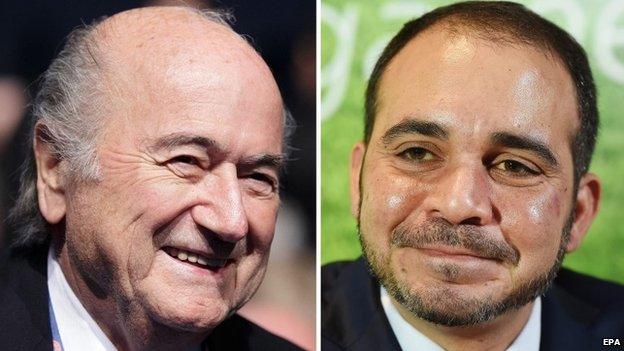
Sepp Blatter will take on Prince Ali bin al-Hussein in Friday's Fifa presidential election
Friday will see world football's governing body hold presidential elections in Zurich, as it carries on with "business as usual" despite the upheavals of recent days. Fifa says it is not clear what time the vote will take place, but it is likely to occur in the afternoon, Zurich time. So what will happen, what can we expect - and what surprises may emerge?
Who is standing?
This is one element, at least, that seems predictable - unless one of the candidates withdraws at the last minute, as they did four years ago.
Sepp Blatter, 79, is seeking a fifth term as Fifa president. He has vowed to remain as a candidate, despite the arrest of seven Fifa officials on charges that they received more than $150m (£100m) in bribes.
He is being challenged by the Jordanian, Prince Ali bin al-Hussein, 39. He has been the head of his country's football association since 1999 and is founder of the West Asian Football Federation, external.
What do they stand for?
According to Mr Blatter's profile on the Fifa website, external, "his key messages and aspirations are credibility, transparency and fair play". His philosophy, it says, is: "Football for all, all for football."
Prince Ali says, external he would aim "to shift the focus away from administrative controversy and back to sport", to make Fifa more transparent and distribute earnings more equally.
How does the vote work?
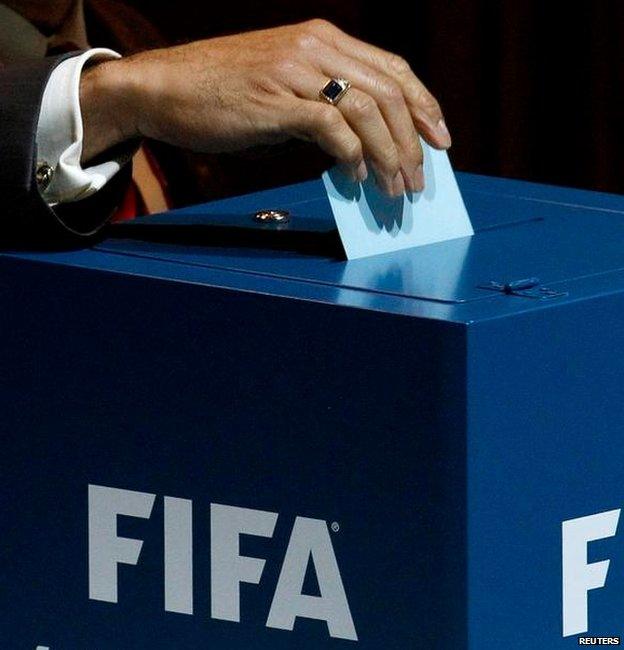
It will be a secret ballot, and all Fifa's 209 member states, external have a vote each. Members vote in alphabetical order, and it will take some time.
In the first round, if either of the candidates wins two-thirds of the vote - a total of 140 votes if everyone takes part - then he wins.
If there is no outright winner at the end of the first round, a candidate would need to win only a straight majority in a second round of voting.
Who can vote?
Not all Fifa members are countries, and all have an equal vote - so Montserrat, a British territory in the Caribbean with 4,900 residents, has the same voice as India, that has a population of more than 1.2bn people.
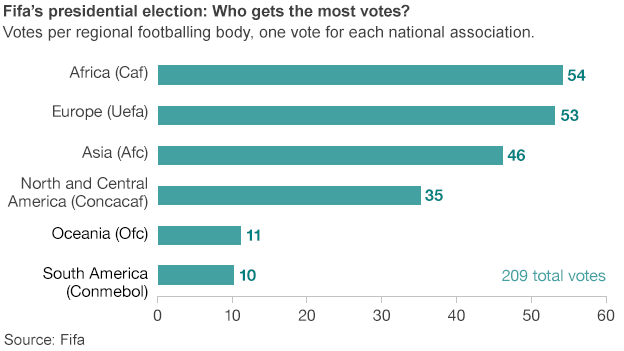
How are they likely to vote?
This is where things get a little unclear.
Although the ballot is secret, many of the world's six football associations, in which member states are grouped, have already said which way they will vote.
Michel Platini, the president of the European federation, Uefa, said on Thursday that "a large majority" of Europe's 53 football associations would vote for Prince Ali.
The Confederation of African Football (CAF), with 54 members, and the Asian Football Confederation (AFC), with 46, said they still backed Mr Blatter. But Australia, an AFC member, said it would vote for Prince Ali.
Mr Blatter has also traditionally enjoyed support from the North American federation, Concacaf, whose president, Jeffrey Webb, was among those arrested on Thursday.
It is not known how members in South America and Oceania plan to vote.
Can members abstain?
Yes - and six states did so during the last presidential election in 2011. One of them, the English Football Association, did so after Mr Blatter's only rival, Mohammed bin Hammam, pulled out days before the election after being suspended over bribery allegations.
Mr Blatter was re-elected after receiving 186 of the 203 votes cast.
Can countries show their opposition in other ways?
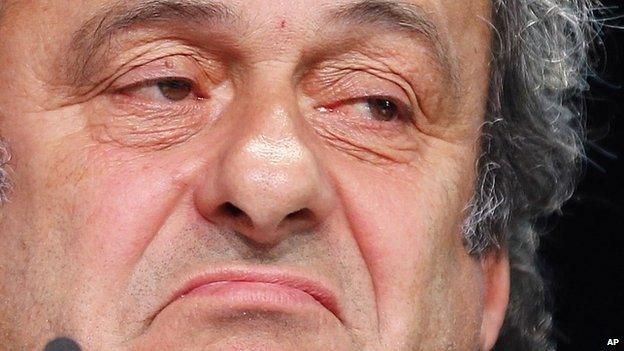
Michel Platini said a "large majority" of European votes would go to Prince Ali
Yes, and the English FA tried to do so in 2011. They called for a delay in the vote because of the corruption allegations, but only 16 other states backed their motion and the election went ahead. It is not yet clear whether a similar motion will be tabled on Friday.
Uefa chief Platini called on Mr Blatter to stand down on Thursday but he refused to do so. The organisation had also asked for the vote to be postponed - a call not supported by the AFC or CAF.
The BBC has learned that Uefa could call for an extraordinary general meeting of Fifa's Congress if Mr Blatter wins on Friday.
If 20% of members agree with the motion, the meeting would have to be held within three months - and a motion of no confidence would almost certainly be put forward.
What does the president actually do?
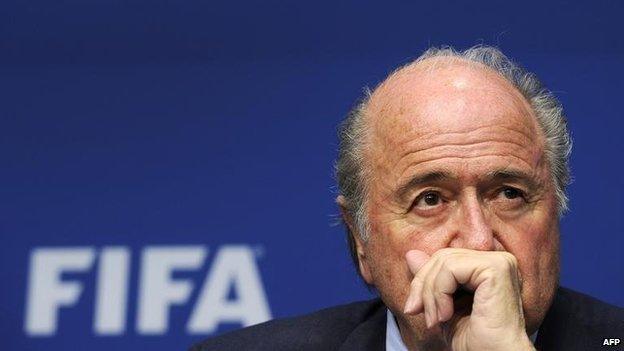
Sepp Blatter has led Fifa for 17 years, through numerous corruption and bribery scandals
The president of Fifa presides over its executive committee - where the organisation's real power lies. He or she supervises the committee's eight vice presidents and 15 ordinary members, and casts a deciding vote when necessary.
According to Fifa's statutes, the president also "legally represents" the organisation, "maintains relations between Fifa and the confederations, members, political bodies and international organisations", and "implements the decisions passed by the Congress and the Executive Committee".
And how much do they earn?
Perhaps unsurprisingly, given the recent revelations, the Fifa presidential salary is shrouded in secrecy and estimates vary wildly.
According to Fifa's 2014 financial report, external it paid a total salaries bill of $88.6m, of which $39.7 million, excluding pension contributions, was paid to "key management personnel" - the executive committee, finance committee and general Fifa management.
That $39.7 million is not broken down any further however. Mr Blatter said in 2011 that his salary was "$1m perhaps a bit more", before adding: "I'm not ashamed by that".
What we do know is that total salaries paid to Fifa key management personnel increased by 95% between 2010 and 2014.